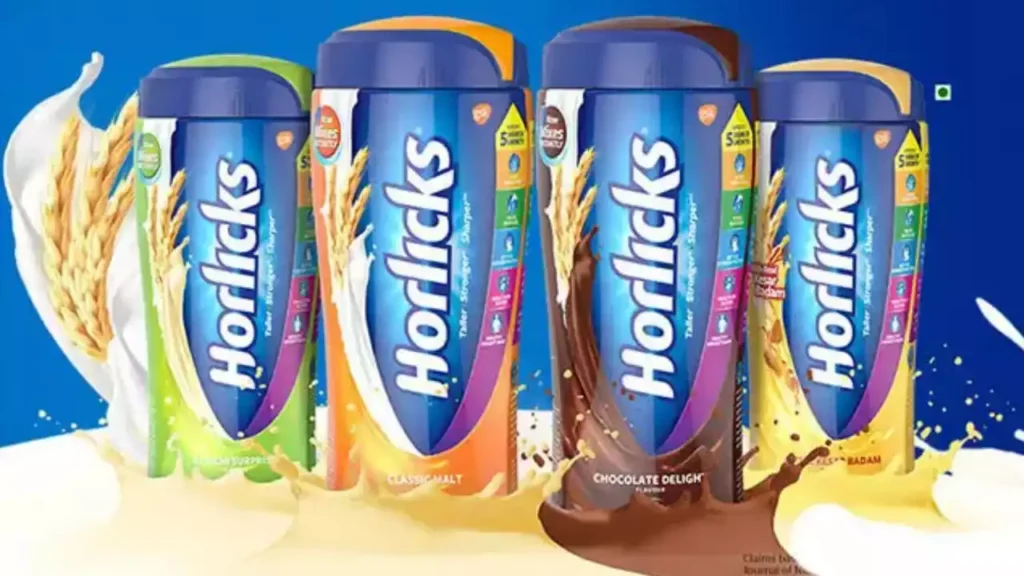In response to recent regulatory shifts in the health drinks sector, Hindustan Unilever (HUL) executed a notable rebranding strategy. The company has opted to relabel its ‘health food drinks’ category as ‘functional nutritional drinks’ (FND) and has removed the ‘health’ label from Horlicks.
During the earnings press conference on April 24, Ritesh Tiwari, the Chief Financial Officer of Hindustan Unilever, unveiled the change. Tiwari stressed that the transition to the FND label offers a more precise and transparent portrayal of the category. He underscored the untapped potential of the FND market, signaling substantial avenues for growth.
The Food Safety and Standards Authority of India (FSSAI) recently directed e-commerce platforms to refrain from classifying dairy, cereal, and malt-based beverages as ‘health drinks’ or ‘energy drinks‘ due to the lack of legal clarity. This measure aims to prevent consumer confusion and misleading advertising practices. The regulators are closely monitoring the health drinks category because the Food Safety and Standards Act 2006 lacks a definition of ‘health drinks’ effectively.
This move comes after concerns were raised about high sugar levels in beverages, as evidenced by Mondalez India-owned Bournvita‘s investigation a few days ago.
Continue Exploring: Nestle faces regulatory heat as FSSAI launches probe into Cerelac sugar controversy
Recently, the government instructed ecommerce platforms that beverages such as Bournvita shouldn’t be termed as health drinks due to the absence of such categorization in the country’s food laws.
“All ecommerce companies/portals are hereby advised to remove drinks/beverages, including Bournvita, from the category of ‘health drinks’ on their sites/portals,” stated the commerce and industry ministry in a notification.
Last year, Cadbury Bournvita, India’s most popular malted drink, became embroiled in controversy when a social media influencer claimed that the beverage contained high sugar levels.
Mondelez India, the owner of Bournvita, issued a legal notice to the influencer, compelling them to remove the video. However, the situation escalated into a controversy, prompting the National Commission for Protection of Child Rights (NCPCR) to demand the brand to retract all deceptive packaging, advertising, and labels.
Earlier this month, the Food Safety and Standards Authority of India (FSSAI) directed ecommerce platforms to refrain from categorizing dairy-based or malt-based beverages as ‘health drinks’.
Continue Exploring: FSSAI directs e-commerce companies to stop labeling dairy and cereal-based beverages as ‘health’ or ‘energy’ drinks
The latest directive from the commerce and industry ministry comes in response to an inquiry by NCPCR — a statutory body constituted under the Commission for Protection of Child Rights Act, 2005.
As per the notification dated April 10, it was noted that there is no definition for ‘health drink’ under the FSS Act 2006, rules, and regulations, as submitted by FSSAI and Mondelez India Food Pvt Ltd.
Nestle faced scrutiny when reports emerged that the brand includes sugar in infant milk sold in less affluent countries such as India, while not doing so in its main markets like Europe or the UK.
The revelation surfaced when “Public Eye,” a Swiss investigative organization, and IBFAN (International Baby Food Action Network), sent samples of the company’s baby food products marketed in Asia, Africa, and Latin America to a Belgian laboratory for analysis.
Continue Exploring: Nestle India responds to sugar concerns in baby food, highlights 30% reduction in added sugars over 5 years
Subsequently, the Food Safety and Standards Authority of India (FSSAI) launched an investigation into the sugar content controversy surrounding Nestle’s Cerelac products.
In light of the allegations, FSSAI reiterated its dedication to conducting a comprehensive investigation into the matter. Should Nestle be found culpable, the regulatory authority has pledged to take rigorous measures against the brand. As part of the inquiry, a committee will be convened to scrutinize the particulars of the case.
In swift response to the controversy, the brand issued a clarification. ANI quoted the company stating, “We want to assure you that our Infant Cereal products are manufactured to provide the essential nutritional elements, including Protein, Carbohydrates, Vitamins, Minerals, Iron, etc., necessary for early childhood.”
“We maintain an unwavering commitment to the nutritional quality of our products, both now and in the future. Utilizing our expansive Global Research and Development network, we continuously strive to enhance the nutritional profile of our products,” the statement emphasized.
Continue Exploring: Nestle shareholders push for healthier food sales amid concerns over nutritional impact
